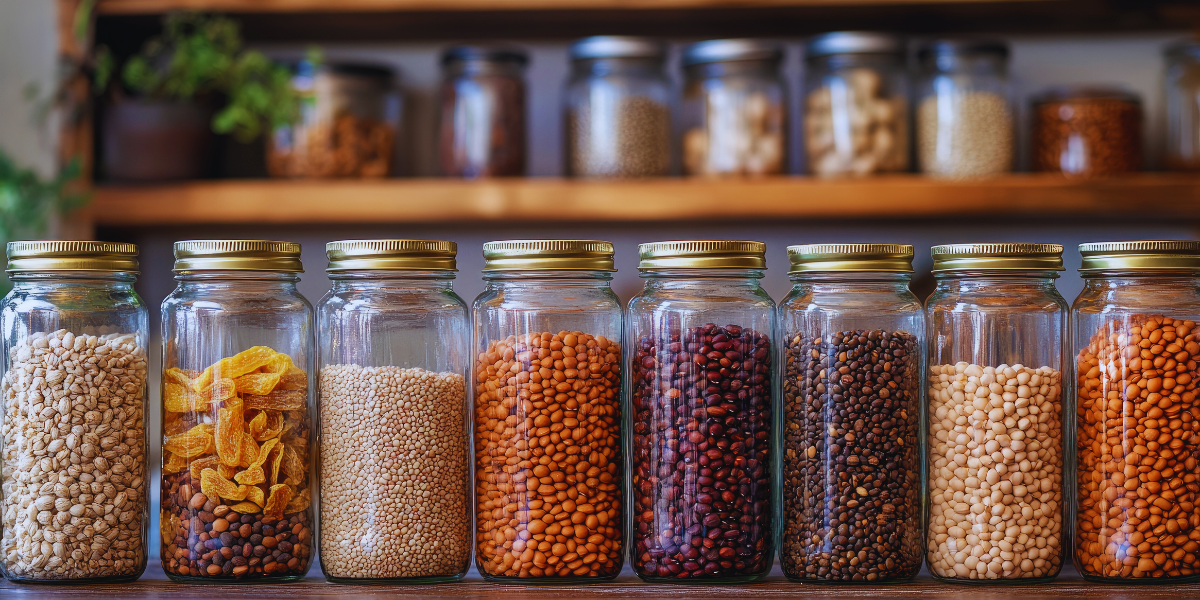
Shopping in bulk offers more than just savings – it’s an easy way to reduce waste, minimize your environmental impact, and keep a well-stocked pantry ready for meal planning or spontaneous cooking. Plus, bulk buying reduces packaging waste, helping to create a more sustainable world. However, to fully reap the benefits of bulk purchases, proper storage is key to keeping your goods fresh and organized for the long term. Here’s how you can maximize the longevity and quality of your bulk foods:
Clean, Dry, Cool, and Dark
The main enemies of bulk food freshness are oxygen, light, humidity, and heat. To protect your stored items:
- Ideal Temperature: Keep your storage area between 50–70°F to help your food last longer.
- Avoid Heat and Light: Steer clear of storing food near heat sources like ovens or on open shelves near windows, as light and heat can cause food to spoil faster.
- Cleanliness Matters: Keep your storage space free from dust and pests, as a clean environment helps maintain the quality of your bulk goods.
Keep It Airtight
Airtight containers are crucial for preserving your food’s freshness by reducing exposure to oxygen:
- For Everyday Items: Use glass jars or Tupperware for items like seeds or nuts that you use regularly. Be sure the lids seal properly to maintain freshness.
- For Long-Term Storage: Mylar bags or pail containers are excellent for larger quantities of beans, grains, and flour, offering protection from oxygen, moisture, light, and pests.
Store What You Eat & Practice FIFO
While buying in bulk is convenient, it’s important to stock up on foods your family regularly consumes. Avoid purchasing large quantities of items you rarely eat, as this could lead to waste. Here are a couple of tips to make sure your bulk buys are practical:
- Meal Planning: Plan your meals ahead of time to help determine which foods to buy in bulk. This ensures you’re purchasing what you’ll actually use.
- FIFO Method (First In, First Out): Always practice the FIFO method. Place newly purchased items at the back of your pantry and use the older items first to prevent spoilage and waste.
By following these storage tips, you’ll ensure your bulk foods remain fresh, safe, and ready to use whenever you need them—whether it’s for your next meal or in an emergency. Proper storage is essential to fully enjoying the benefits of bulk buying, saving you both time and money while reducing waste!
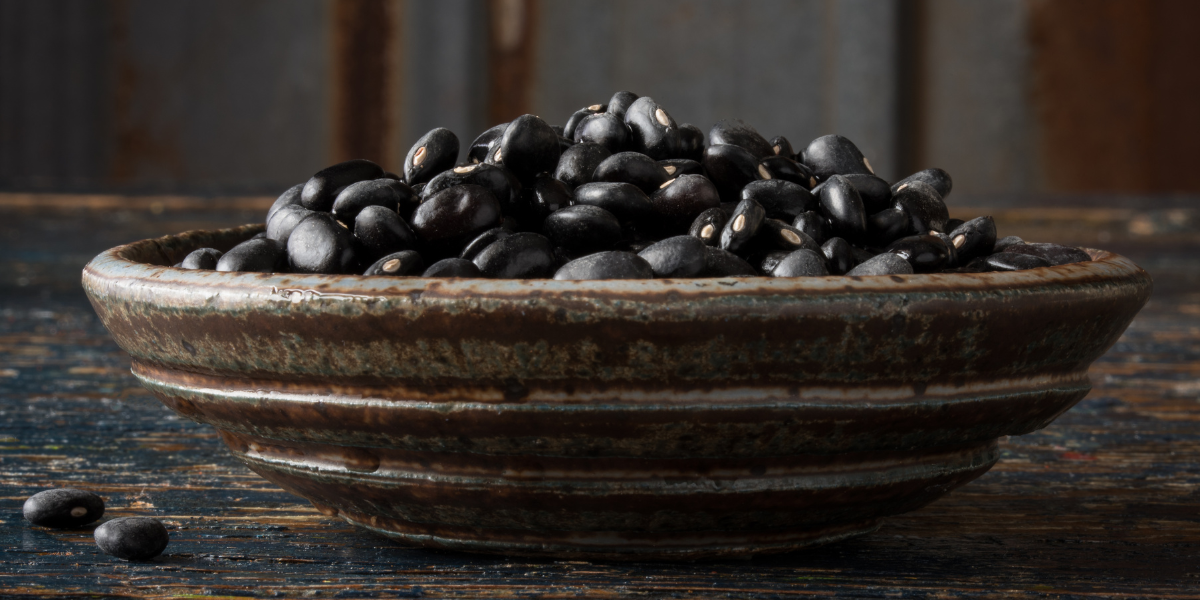
BEANS
Beans stored in airtight containers, like mason jars, will stay fresh for up to 3 years in the pantry. In the freezer, they can last indefinitely. Be sure to label containers with the storage date.
For long-term storage, beans kept in sealed buckets or Mylar bags with oxygen absorbers at 70°F or less can last 10+ years. This method helps preserve oils and nutrition for easier rehydration.
After 2 years, beans may lose moisture, so cooking them longer is necessary. Adding ¼ teaspoon of baking soda per 500 grams can help soften them during cooking.
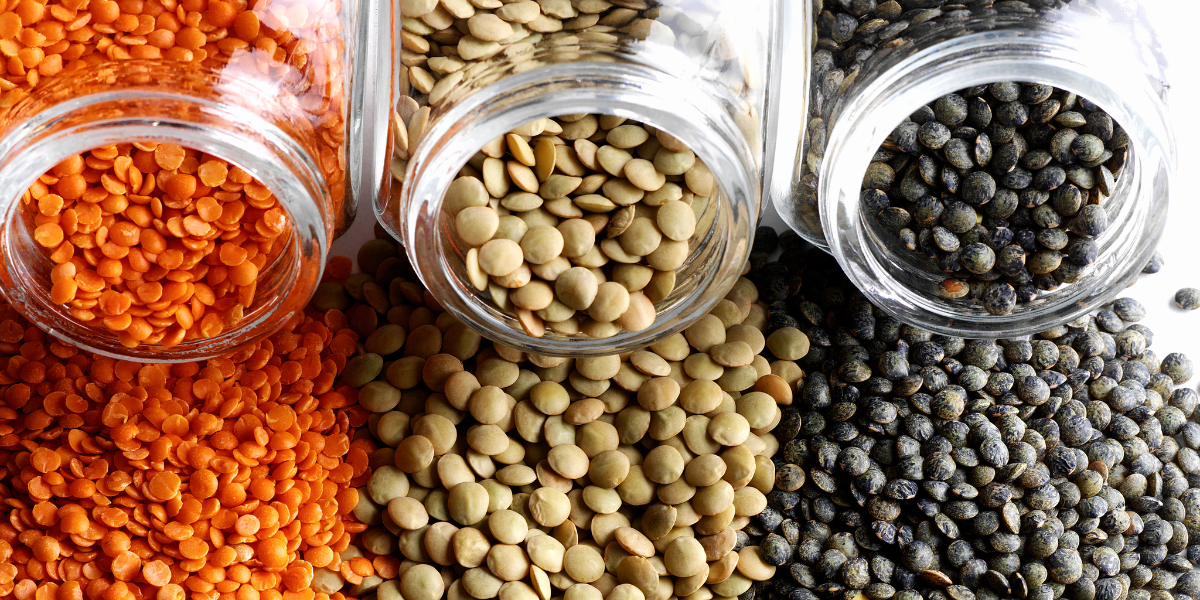
LENTILS
Lentils can be stored in their original packaging for up to 1 year, in airtight containers for 3 years, and frozen indefinitely.
When stored in sealed containers or Mylar bags in a cold, dry place, lentils can last nearly indefinitely. While they may lose color and some vitamin content over time, they will retain their carbohydrate and protein values. Keep in mind, lentils become drier the longer they’re stored.
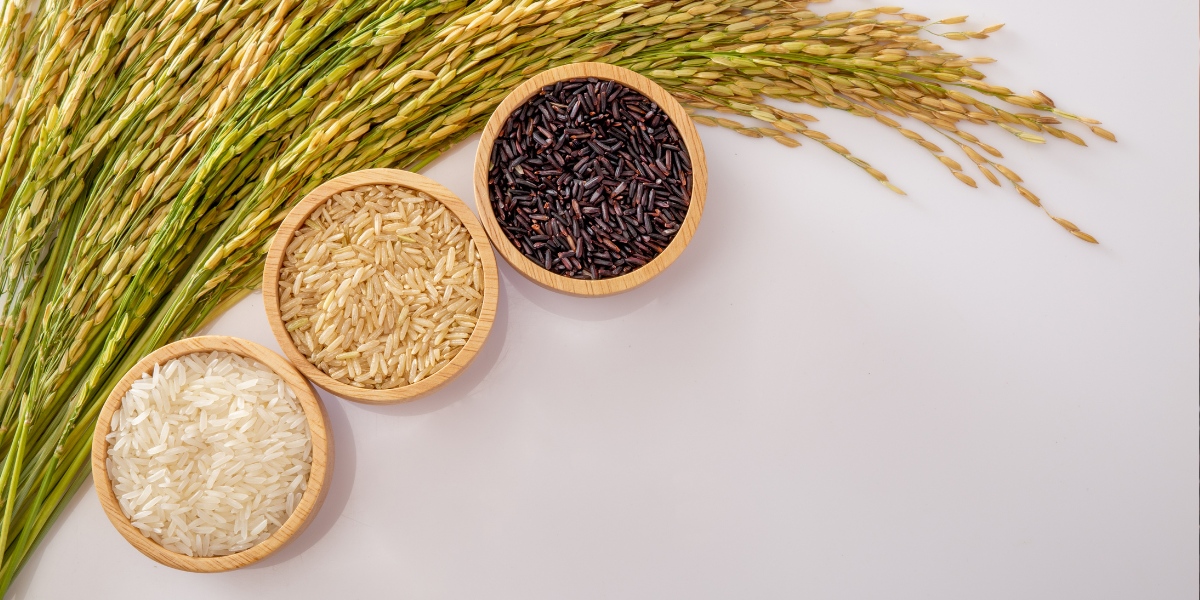
RICE
Brown and wild rice stay fresh for 6–8 months in the pantry and 8–12 months in the fridge, while white rice can last 3–5 years in its original packaging.
For long-term storage, white and wild rice can last up to 30 years, and brown rice up to 2–5 years if stored properly. White rice is ideal for long-term storage since brown rice contains oils in its bran layer, making it more prone to spoilage.
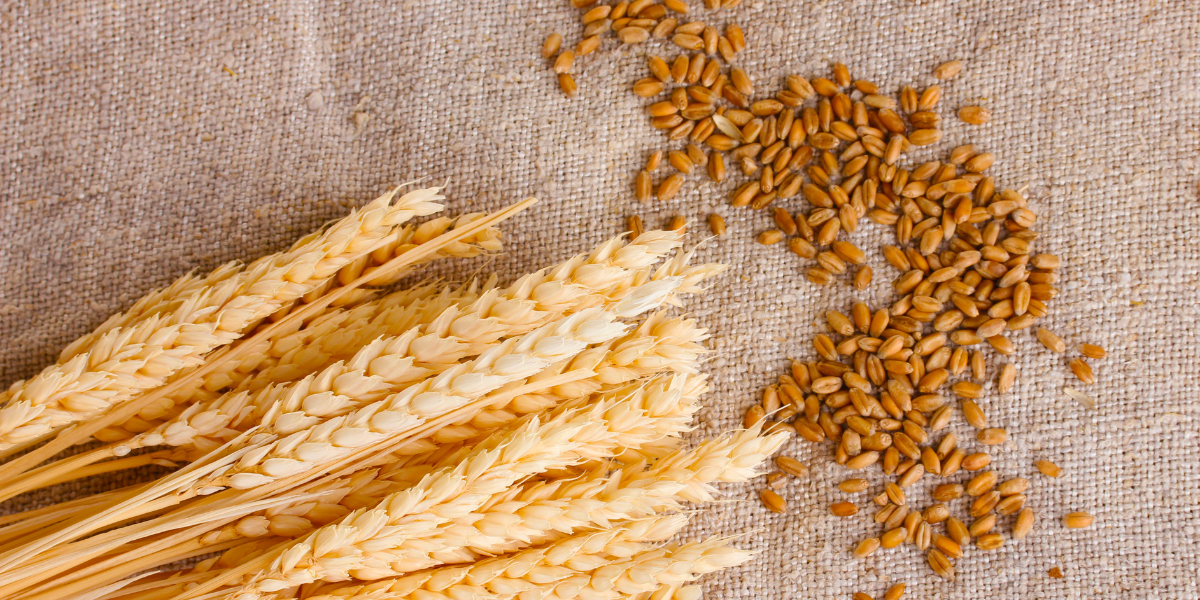
WHEAT
Heat, light, and moisture can damage the healthy oils in whole grain germ, so proper storage is crucial. Whole wheat can last up to 6 months on a cool, dry pantry shelf or up to a year in the freezer.
For long-term storage, bulk wheat can last up to 30 years when stored in airtight containers lined with Mylar bags and oxygen absorbers, under optimal conditions.
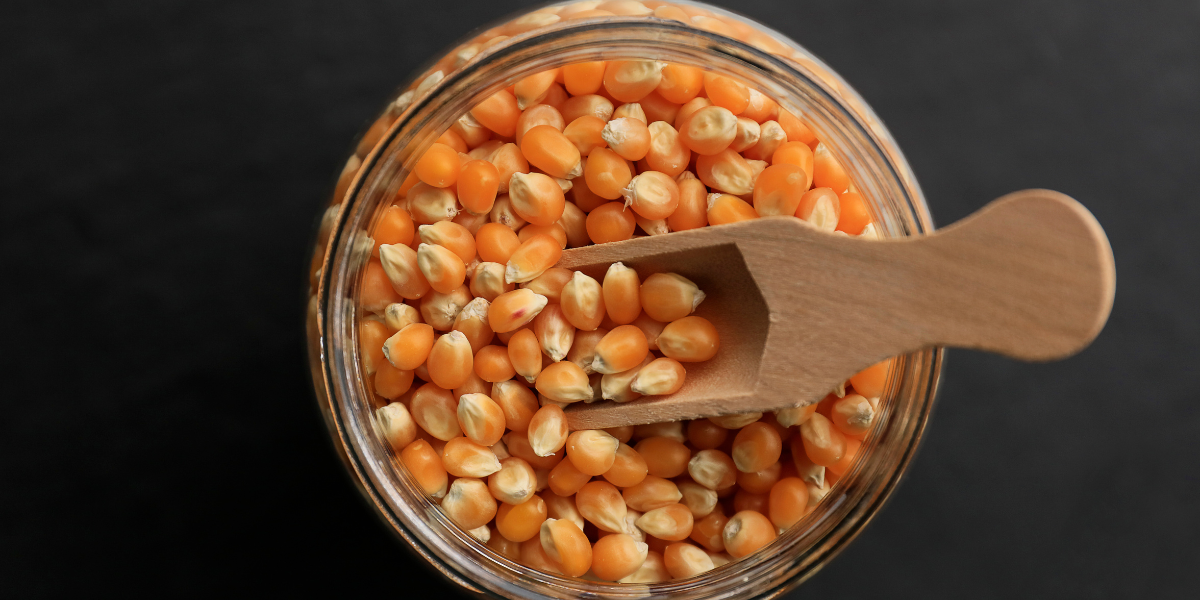
CORN
Corn’s thick outer shell makes it resilient to environmental changes. With proper monitoring and environmental control, corn can last in long-term storage for 10–12 years. Ensure the corn is dehydrated to at least 15% moisture content before storing it for extended periods.
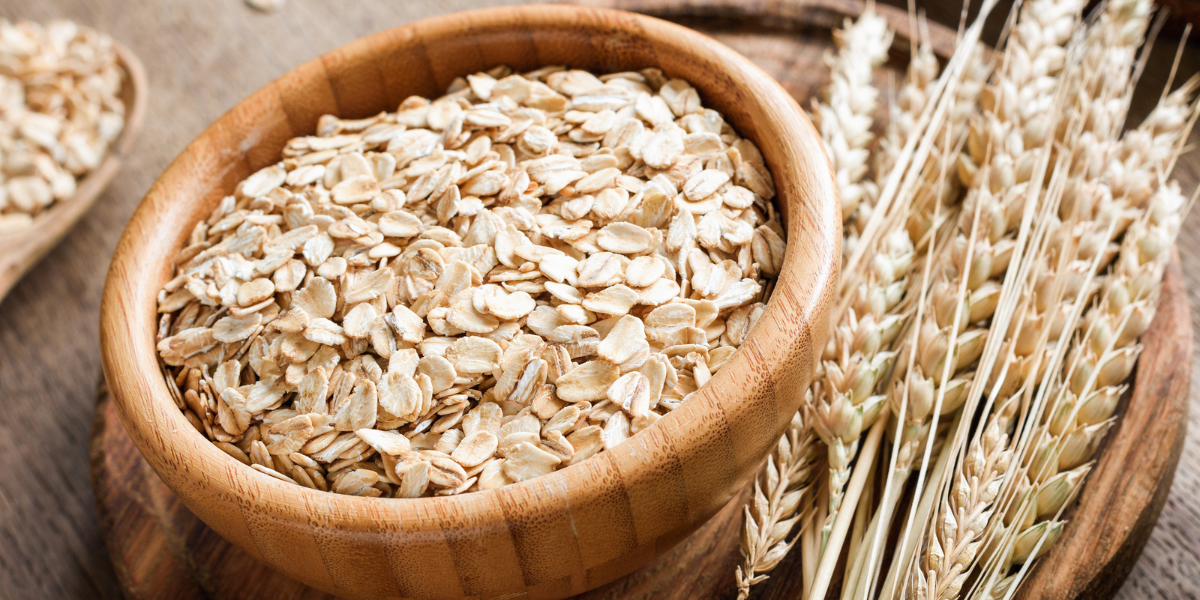
OATS
Rolled oats have a shelf life of 18–24 months in their original packaging and will stay fresh for 6–9 months once opened. If transferred to an airtight container, they can last up to 3 years.
For long-term storage, rolled oats can last up to 25 years under optimal conditions. In humid areas, adding silica gel packets or oxygen absorbers to your containers can help prevent mold.
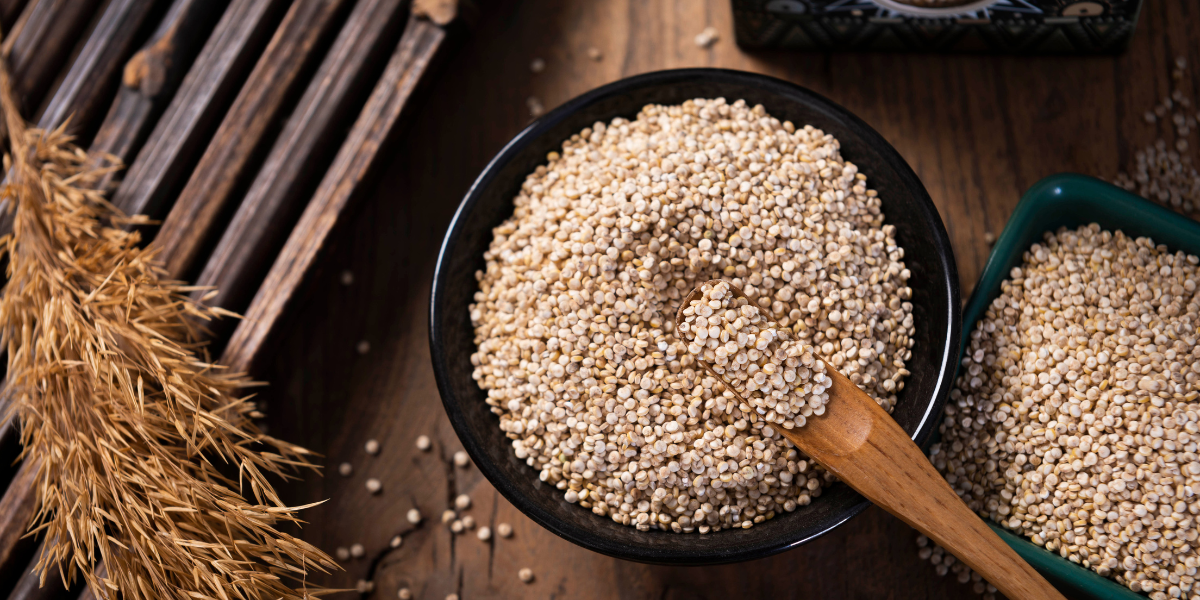
QUINOA
Quinoa is high in oils, making it more prone to spoilage compared to wheat or corn. It also sprouts easily with minimal moisture. For this reason, quinoa should be stored in a very dry environment with careful moisture control and minimal oxygen exposure.
Quinoa can last up to 3 years in the pantry or fridge, and up to 8 years in optimal conditions for long-term storage.
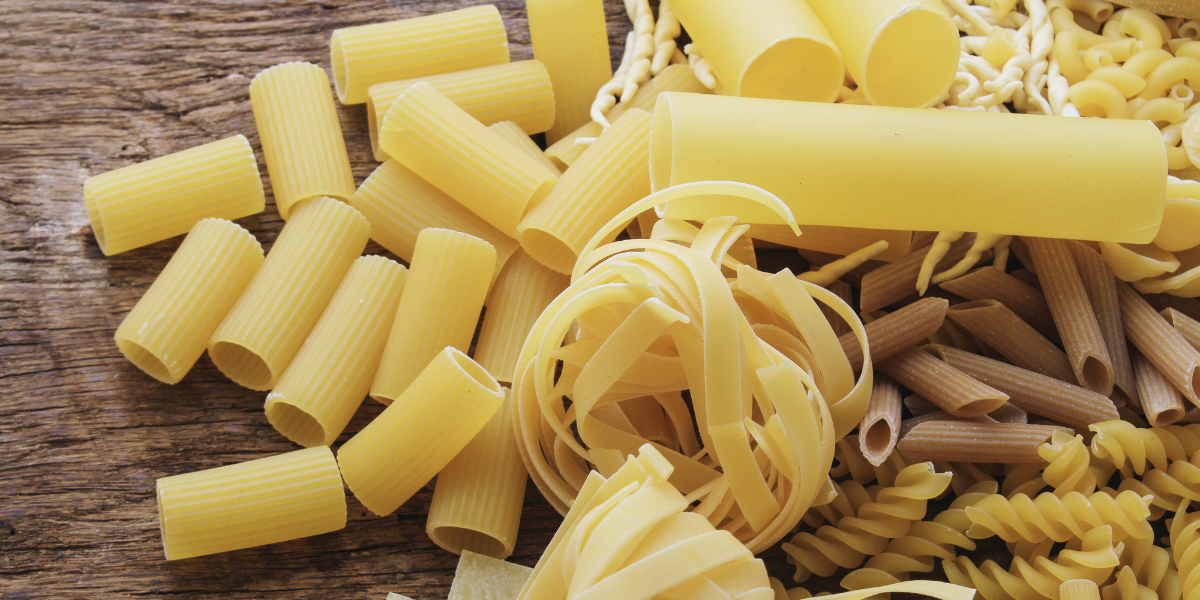
PASTA
Dry pasta, spaghetti, and macaroni won’t expire but may lose quality over time. Moisture is the biggest threat, as it can seep in and spoil the pasta.
If stored correctly, dry pasta can last over 10 years. However, egg pasta, gluten-free, and flavored pastas may not last as long. Storing dry pasta in the fridge or freezer won’t extend its shelf life.
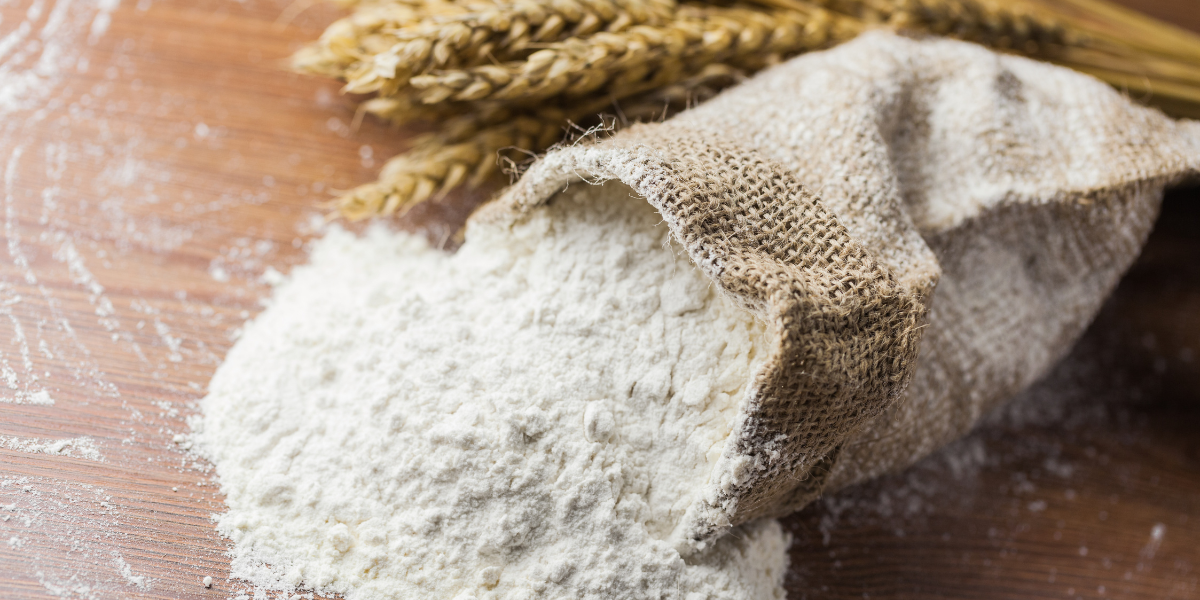
FLOUR
The main culprits when storing flour long-term are insects, mold, and oxidation. White flour lasts up to 6 months in its original paper bag and 6–10 months in an airtight container in the pantry. It stays fresh for up to 12 months in the fridge and 2 years in the freezer. For whole-wheat flour, these timeframes are roughly halved.
Using Mylar bags with oxygen absorbers, white flour can be stored for over 10 years, and whole-wheat flour for 5+ years.
All grains, including flour, will last indefinitely in the freezer, which also kills any insect eggs that could lead to infestations.
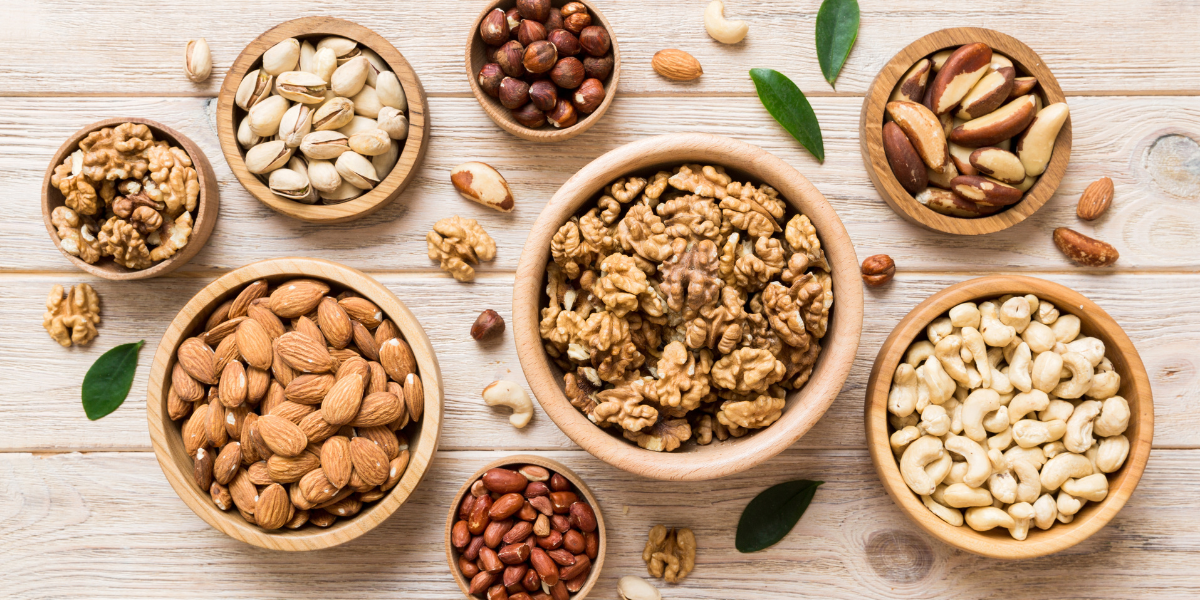
NUTS
When stored properly, most nuts can last up to 9 months in the pantry, except for pecans, pistachios, and walnuts, which stay fresh for 3–6 months.
In the fridge, all nuts remain fresh for up to 1 year, and in the freezer for up to 2 years. Whole, raw, and unshelled nuts typically last longer.
For best results, keep nuts away from high-odor foods like onions, cabbage, and seafood, as they easily absorb surrounding smells.
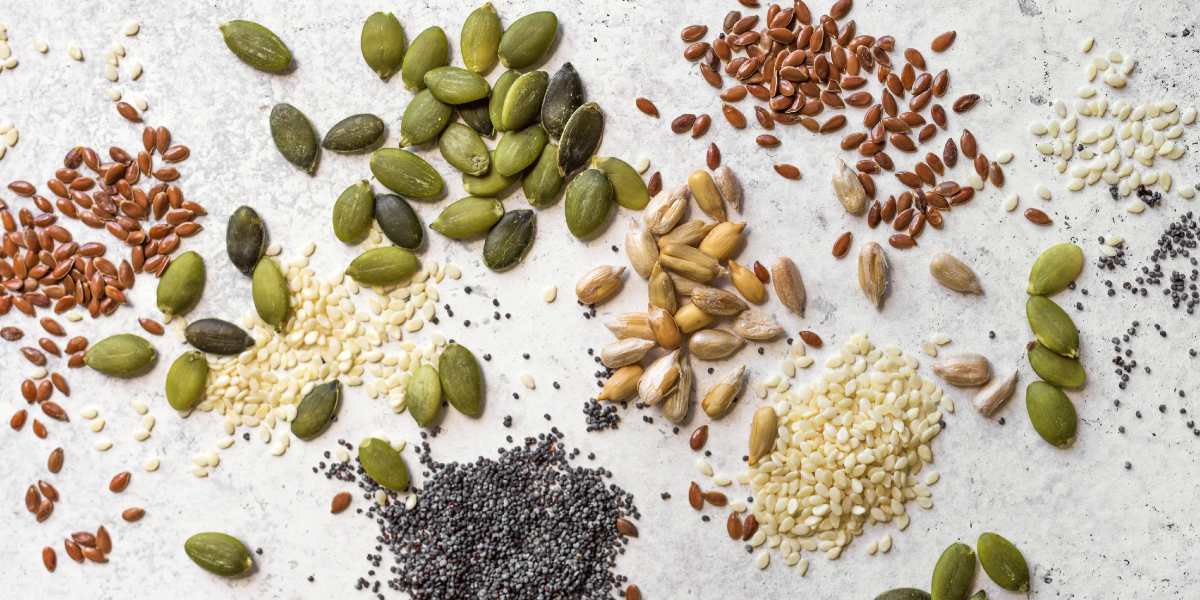
CHIA & FLAX SEEDS
Chia seeds will be perfectly fine for up to 2 years in the pantry if they are in a sealed or airtight container and up to 4 years when still unopened or stored in the fridge or freezer.
6- 12 months in an airtight container in your pantry and 1+ years in the fridge or freezer.
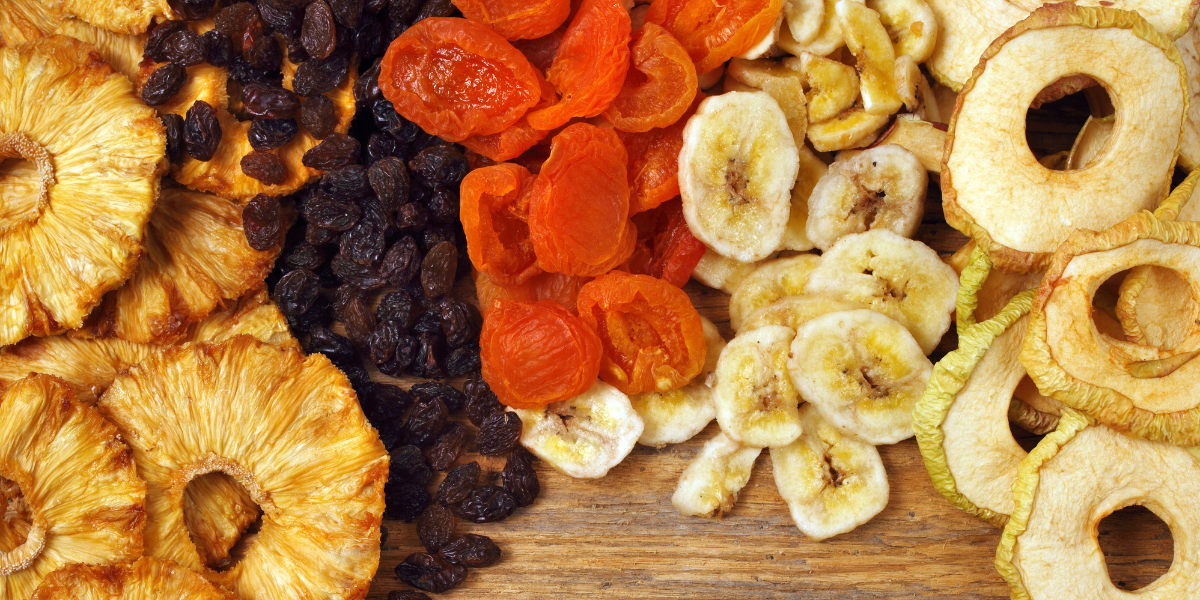
DRIED FRUIT
Dried fruits can stay fresh for up to 1 year when stored properly in the pantry. In the fridge, their freshness can be extended to 2 years, and they can last indefinitely when frozen.

HERBS & SPICES
Ground or powdered spices can last 2–3 years, while dried herbs can last 1–2 years if stored in airtight containers in a cool, dark place away from heat and moisture.
Tip: Avoid adding herbs and spices directly over steaming food, as the moisture can affect their quality and lead to mold. Instead, add them to your hands first, then transfer to the dish.
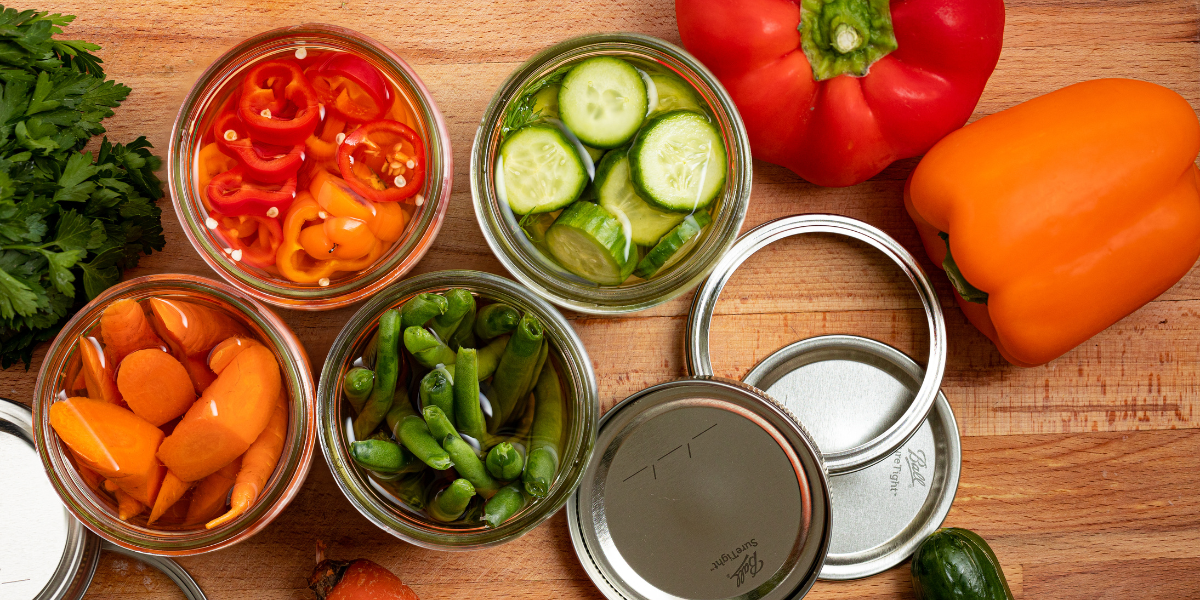
HOME CANNED GOODS
Highly acidic foods, like tomatoes and fruit, can be stored in the pantry for 12–18 months when properly canned.
Low-acid foods, such as meats and vegetables, can last 2–4 years if preserved correctly through pressure canning.
These timeframes are only applicable if the canning process was done correctly and the jars are stored in a cool, dry place.

